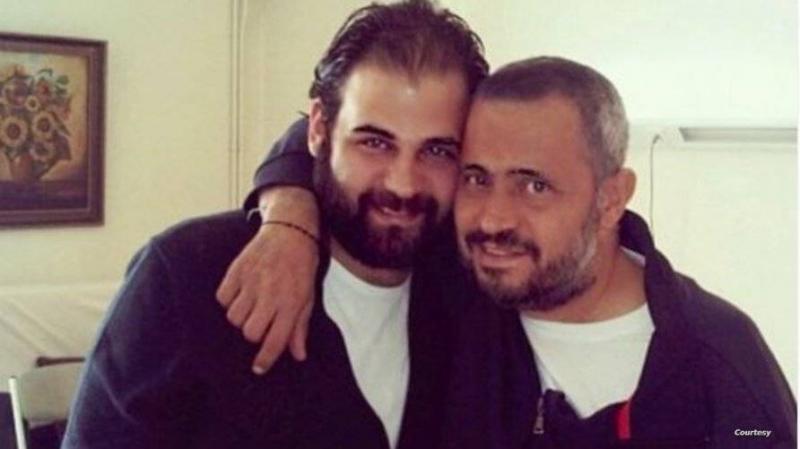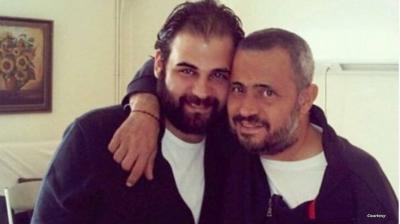The death of George Wassouf's son due to health complications following a surgical operation in Beirut has renewed questions about the state of the medical sector in Lebanon amidst economic crises. These crises lead to a gap between the capabilities of the medical sector and the patients' ability to pay for medical bills, which are two separate issues, with officials dismissing the idea of "medical error," according to doctors and authorities.
Despite the shock that swept through Beirut after the announcement of the death of Wadih Wassouf, the son of Syrian singer George Wassouf, the Wassouf family did not suggest that a medical error led to the tragic loss of their loved one due to severe complications following a gastric sleeve surgery performed in Beirut.
Former Minister of Health and specialist in gastrointestinal surgery at the American University of Beirut, Dr. Mohamad Jawad Khalifa, confirms that "the gastric sleeve surgery that Wadih Wassouf underwent has its complications and risks." He explained to "Asharq Al-Awsat" that "these complications vary, including bleeding, stomach perforation, bowel obstruction, and arterial clots, which we see in Lebanon, as in America, Germany, and every country in the world. This is something we explain to the patient and their family, and anyone can check their rates with a simple online search. Most of the time, they are treatable."
Khalifa, a member of the Royal College of Surgeons in London, adds that "hospitals in Lebanon, despite the crisis, still have the best equipment in the region and competent medical teams, but the main problem is not in the hospitals, but in the inability of patients to pay for treatment costs, which is not the case for Wadih Wassouf, who shocked all of Lebanon with his death while still young." He emphasizes that discussing the hypothesis of medical error "cannot be substantiated without an official investigation from the Medical Association and medical committees."
Lebanon has suffered over the past two years from an exodus of doctors and nurses due to the decline in financial returns for workers inside the country because of the economic and financial crisis, leading to logistical challenges in some hospitals. However, this has not affected the level of competencies and medical teams that still exist in the country, nor has it impacted the nature of medical equipment, in addition to the fact that the cost of treatment and access to ideal medical services has become unaffordable for many Lebanese who have lost a significant portion of their purchasing power due to the decline in the local currency's value against the dollar. Meanwhile, government entities that provide coverage (the Ministry of Health and the National Social Security Fund) are no longer able to cover treatment expenses.
Dr. Sleiman Haroun, president of private hospitals in Lebanon, sees no reason to link the migration of doctors and nurses from Lebanon due to the crisis to the death of Wadih Wassouf, affirming to "Asharq Al-Awsat" that "this is a logistical problem that should not be given more weight than it has, and it cannot be a direct cause of the patient's death."
He underscores that "this type of surgery has many complications, but very few cause fatalities," explaining that doctors usually inform the patient of possible complications before the operation. The news of Wadih Wassouf's death shocked the Lebanese, especially since many common operations that aim to improve people's lives, whether for weight loss or aesthetic reasons, are carried out without significant concern. However, the incident of the son of George Wassouf has highlighted that any operation carries its risks no matter how small, and sometimes the greatest danger comes from errors or even without them.
Member of the Health Committee, MP Fadi Alama, rejects the notion of definitively attributing a medical error to the incident, stating that he has no knowledge of the specifics of the operation that Wadih Wassouf underwent. However, he believes that "medical errors occur everywhere, in the best countries as well as the worst; therefore, I do not want to link the death of Wadih George Wassouf to the health situation that we know is suffering from a shortage of doctors and funding for expenses, but it is still resilient despite the crises."
Doctors emphasize the need to address the sensitive topic of medical errors without negligence, dismissiveness, or preconceived notions. Khalifa states: "There is no doctor or medical team that does not want to provide the best service for their patients," adding: "It is very difficult to talk about the case of Wadih George Wassouf without being well-informed about it. Each case is different from another, and each body has its own details and circumstances. The patient’s particular condition usually dictates the outcomes of the surgery," explaining that "there are those who suffer from blood clotting, or liver cirrhosis, and no two cases are the same. Therefore, making general statements can have risks and consequences, and no one can determine or know what happened without a professional investigation."
Thousands of gastric sleeve and similar surgeries are performed in Lebanon, with each operation having its own circumstances, just as each patient has their own specific situation. Khalifa says: "Making unfounded accusations is unscientific. This is something that the law holds accountable in countries that respect themselves when its untruth is proven. Any investigation requires reviewing all the stages and tests the patient went through."




